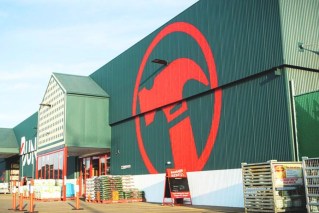EU proposes Russian oil ban as Ukraine loses contact with soldiers in Azovstal steelworks

The world’s largest trading bloc, the European Union, has proposed its toughest sanctions yet, including phasing out Russian oil by the end of the year, but is already facing a roadblock to ending its energy dependence.
After six weeks of talks, EU Commission President Ursula von der Leyen said weaning off Russian oil would be hard but was necessary to ensure President Vladimir Putin paid a “high price” for his “brutal aggression”.
“Let’s be clear: it will not be easy. But we simply have to work on it. We will make sure that we phase out Russian oil in an orderly fashion, to maximize pressure on Russia, while minimizing the impact on our own economies,” she told EU lawmakers in Strasbourg.
However Hungary has already warned it could not agree to the quick timeline while Slovakia — which got 92 per cent of its oil imports from Russia last year — and the Czech Republic want longer transition periods.
The plan must be approved by all 27 EU member states.
Hungary’s Secretary of State for International Communication and Relations Zoltán Kovács told the BBC the oil ban was “unacceptable” and would “ruin the Hungarian economy”.
Nearly 60 per cent of Hungary’s imported oil came from Russia in 2021, according to the International Energy Agency.
Mr Kovacs said Hungary had limited alternative energy options.
“Hungary is a landlocked country. We have inherited a one-sided dependence on Russia after the fall of communism,” he said.

European Commission President Ursula von der Leyen urges the 27 nation bloc to take tough measures against Russia. Photo: Getty
The oil ban would be the EU’s sixth round of sanctions against Russia, having already agreed to phase out Russian coal imports.
Crude oil supply would be phased out within six months, and imports of refined oil products by the end of 2022.
The plan includes removing Russia’s biggest bank, Sberbank, from the SWIFT international payments network.
The EU has yet to target Russian natural gas, used to heat homes and generate electricity across the bloc.
The Kremlin said Russia was looking at various options in response to the EU plans, adding that the sanctions would greatly increase costs for European citizens.
Contact ‘lost’ with Azovstal soldiers
The Russian military has reportedly entered the Azovstal steelworks where some 200 civilians remain trapped as communication was lost with Ukrainian soldiers.
Earlier, Mariupol’s mayor said he could not make contact with the Ukrainian troops as Russia attempted to “storm” the steelworks for a second day.
“Unfortunately, today there is no connection with the guys, there is no connection to understand what is happening, whether they are safe or not. Yesterday there was a connection with them; today, no more,” he said.
Speaking on Ukrainian television, Mayor Vadym Boichenko said 30 children were among those still trapped.
“They are waiting for a new negotiation procedure and a new evacuation mission,” he said.
“We must understand that people are still dying. Unfortunately, enemy aviation and artillery are working and firing on the fortress constantly.”
Meanwhile, the Kremlin said the Russian Armed Forces were not “storming” the Azovstal plant.
“There has been a public order by the supreme commander (Russian President Vladimir Putin) to cancel the storming; there is no storming,” Kremlin spokesperson Dmitry Peskov said.

A boy evacuated from Mariupol’s Azovstal plant where children remain trapped. Photo: Getty
Russia claims it now controls Mariupol — which Ukraine denies.
The port city once had a population of 400,000 but has been largely reduced to smoking rubble after weeks of siege and shelling.
The city is key to Moscow’s efforts to cut Ukraine off from the Black Sea – vital for its grain and metals exports – and connect Russian-controlled territory in the south and east.
Moscow has deployed 22 battalion tactical groups near the eastern Ukrainian town of Izium in a possible drive to capture the cities of Kramatorsk and Severodonetsk in Donbas, British intelligence said.
The cities are in the eastern Donbas region – Russia’s main target along with Ukraine’s southern coastline since Moscow failed to take Kyiv, the capital, in the weeks after it invaded.
It comes as the Kremlin has dismissed speculation that Mr Putin would declare war on Ukraine and decree a national mobilisation on May 9, when Russia commemorates the Soviet Union’s victory over Nazi Germany in World War Two.
Mr Putin is due to deliver a speech and oversee a military parade on Moscow’s Red Square.
-with AAP








